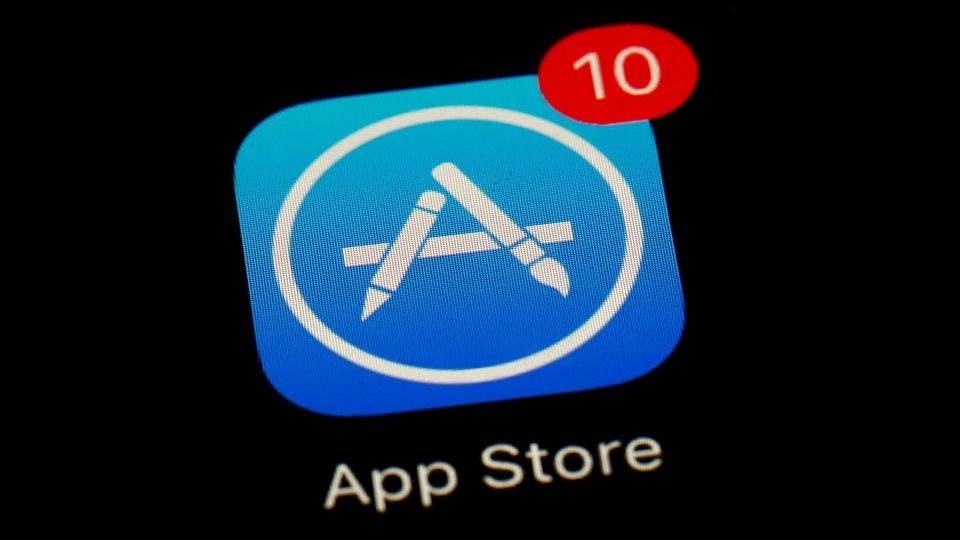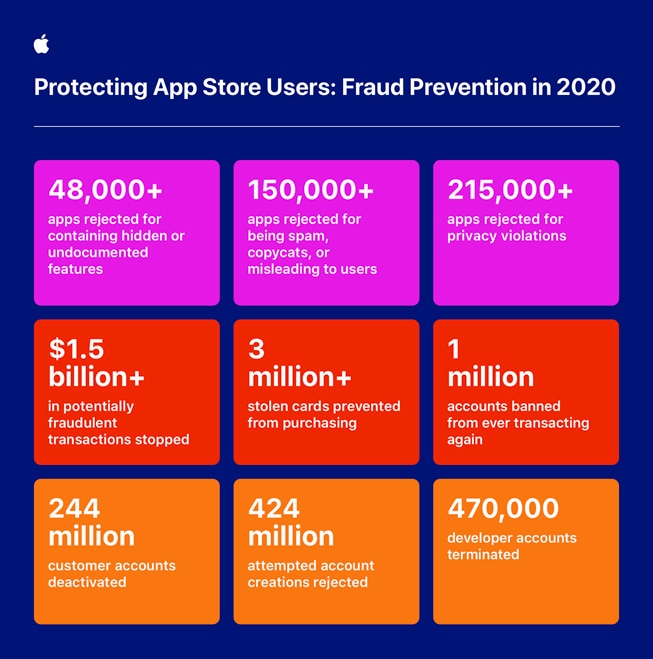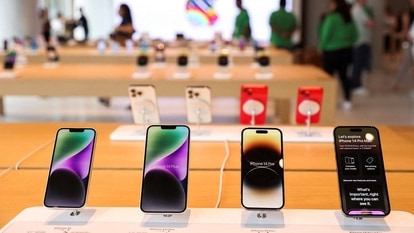Apple explains why its App Store rejected over 1 million new apps in 2020
The company says it used a combination of technology and human experts to protect users from more than $1.5 billion in transactions that could have been fraudulent, while also keeping them safe from data theft.

Apple announced on Tuesday that it had rejected nearly one million new apps that were submitted to the App Store last year, as part of its efforts to identify and detect fraudulent apps and their developers on the platform and take action against them.
In yet another revelation that has given customers a better understanding of how its App Store processes work, the Cupertino company revealed in a detailed post that it
Also read: Apple invests $45 million in Corning's Ceramic Shield, may feature in iPhone 13 series
Calling its App Review team an “essential line of defence”, Apple said that it had evolved its guidelines for the store over time in line with changing threats and challenges, adding that they were applied to every app and every update. “In 2020, nearly 1 million problematic new apps, and an additional nearly 1 million app updates, were rejected or removed for a range of reasons like those,” the company stated.
The company also explained what rejection from the App Store meant, explaining that over 1,80,000 new developers launched apps on the App Store in 2020, and that the company's goal was “always to get new apps on the store.” Apple says that apps may have been rejected for being unfinished, or not fully functional when it is submitted for approval. It also made a veiled reference to social media platform Parler, stating that some apps that were removed “might not yet have a sufficient mechanism for moderating user-generated content.”


Among the one million apps that were rejected from the App Store, the company said it found some ‘egregious' violations, including over 48,000 apps that used hidden or undocumented features not supported on the operating system, while more than 1,50,000 apps that were either spam apps, copied from existing apps and designed to mislead users into making a purchase. Meanwhile, around 95,000 apps were booted off the store for using bait-and-switch tricks to fool users.
Read more: Apple App Store called ‘nightmare' in internal developer survey
Apple also said it has begun removing apps over the last few months that target users who modified their functionality after being reviewed, to become real money gambling apps, or apps for predatory loans, or even pornographic content over video chat. Meanwhile, over 2,15,000 apps were rejected from the store last year for asking for more data than they needed and/or mishandling data that was collected.
The company also said that it had targeted over 244 million customer accounts for fraudulent and abusive activity, while another 424 million suspected fraudulent account creations were blocked. 32 lakh apps that misused an enterprise certificate – a tool that is used by companies to bypass the App Store to install apps on a ‘company managed' work iPhone. The company says that fraudulent developers use this trick to get past Apple's rigorous App Store review process and other nefarious purposes.
Catch all the Latest Tech News, Mobile News, Laptop News, Gaming news, Wearables News , How To News, also keep up with us on Whatsapp channel,Twitter, Facebook, Google News, and Instagram. For our latest videos, subscribe to our YouTube channel.


























